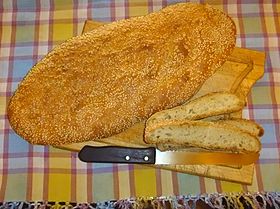- Clean Monday
-
Clean Monday 
Kite-flyer on Clean Monday in Thessaloniki (Macedonia, Greece).Observed by Eastern Orthodox Christian and Eastern Catholic Type Christian Date 41 days before Orthodox Easter 2010 date February 15 (Gregorian)
February 2 (Julian)2011 date March 7 (Gregorian)
February 22 (Julian)Related to First day of Great Lent Clean Monday (Greek: Καθαρά Δευτέρα), also known as Pure Monday, Ash Monday, Monday of Lent or Green Monday, is the first day of the Eastern Orthodox Christian and Eastern Catholic Great Lent. It is a movable feast that occurs at the beginning of the 7th week before Orthodox Easter Sunday.
The common term for this day, "Clean Monday", refers to the leaving behind of sinful attitudes and non-fasting foods. It is sometimes called "Ash Monday," by analogy with Ash Wednesday (the day when the Western Churches begin Lent). The term is often a misnomer, as only a small subset of Eastern Catholic Churches practice the Imposition of Ashes. The Maronite Catholic Church is a notable Eastern rite that employs the use of Ashes on this day.
Liturgically, Clean Monday—and thus Lent itself—begins on the preceding (Sunday) night,[1] at a special service called Forgiveness Vespers, which culminates with the Ceremony of Mutual Forgiveness, at which all present will bow down before one another and ask forgiveness. In this way, the faithful begin Lent with a clean conscience, with forgiveness, and with renewed Christian love. The entire first week of Great Lent is often referred to as "Clean Week," and it is customary to go to Confession during this week, and to clean the house thoroughly.
The theme of Clean Monday is set by the Old Testament reading appointed to be read at the Sixth Hour on this day (Isaiah 1:1-20), which says, in part:
Wash yourselves and ye shall be clean; put away the wicked ways from your souls before Mine eyes; cease to do evil; learn to do well. Seek judgment, relieve the oppressed, consider the fatherless, and plead for the widow. Come then, and let us reason together, saith the Lord: Though your sins be as scarlet, I will make them white as snow; and though they be red like crimson, I will make them white as wool (vv. 16–8).Clean Monday is a public holiday in Greece and Cyprus, where it is celebrated with outdoor excursions, the consumption of shellfish and other fasting food[2], a special kind of azyme bread, baked only on that day, named "lagana" (Greek: λαγάνα) and the widespread custom of flying kites. Eating meat, eggs and dairy products is traditionally forbidden to Orthodox Christians throughout Lent, with fish being eaten only on major feast days, but shellfish is permitted in European denominations. This has created the tradition of eating elaborate dishes based on seafood (shellfish, molluscs, fish roe etc.). Traditionally, it is considered to mark the beginning of the spring season, a notion which was used symbolically in Ivan Bunin's critically acclaimed story, Pure Monday. People on Clean Monday usually take their picnic baskets and put inside fasting foods because it is the day that Lent begins.
The happy, springtime atmosphere of Clean Monday may seem at odds with the Lenten spirit of repentance and self-control, but this seeming contradiction is a marked aspect of the Orthodox approach to fasting, in accordance with the Gospel lesson (Matthew 6:14-21) read on the morning before, which admonishes:
When ye fast, be not, as the hypocrites, of a sad countenance: for they disfigure their faces, that they may appear unto men to fast. Verily I say unto you, They have their reward. But thou, when thou fastest, anoint thine head, and wash thy face, that thou appear not unto men to fast, but unto thy Father which is in secret... (v. 16-18).
In this manner, the Orthodox celebrate the fact that "The springtime of the Fast has dawned, the flower of repentance has begun to open..."[3]
See also
Notes
- ^ Orthodox Christians, following the Old Testament practice, count the day as beginning at sunset (1:5&src=! Genesis 1:5).
- ^ Strictly observant Orthodox hold this day (and also Clean Tuesday and Wednesday) as a strict fast day, on which no solid food at all is eaten. Others will eat only in the evening, and then only xerophagy (lit. "dry eating"; a type of fasting that includes eating only raw or simply prepared foods, especially foods prepared with no oils, such as bread and honey, fruit, nuts, halva, etc).
- ^ Aposticha, Vespers on Wednesday of Cheesefare Week. The Lenten Triodion:Supplementary Texts. Tr. Mother Mary and Archimandrite Kallistos Ware (Monastery of the Veil, Bussy-en-Othe, France, 1979), p. 25.
External links
- Monks on Mount Athos performing the Ceremony of Forgiveness
- Forgiveness Vespers St. Innocent Cathedral, Anchorage, Alaska
- Clean Monday Celebration
Categories:- Monday
- Eastern Orthodox liturgical days
- Greek culture
- Cypriot culture
- Kite festivals
Wikimedia Foundation. 2010.

